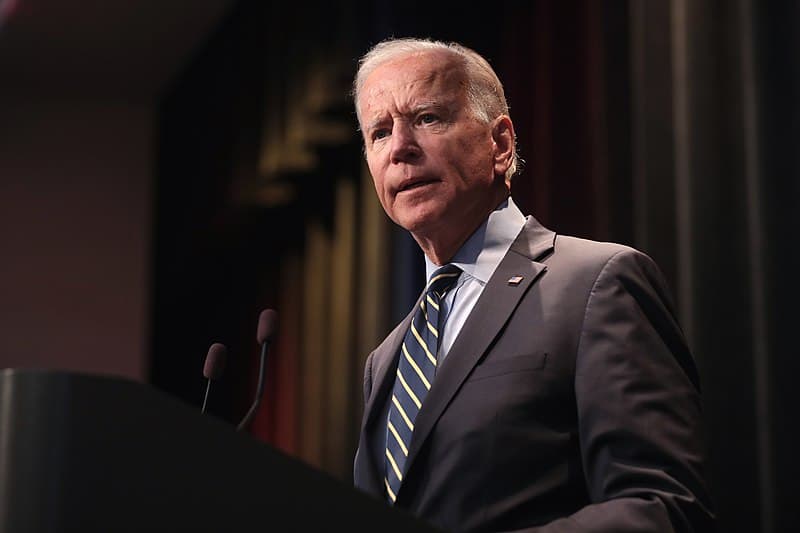Fran Swanson is a student at Harvard Law School.
In his State of the Union address last night, President Biden emphasized the needs of American workers and their families. He called on Congress to pass the Paycheck Fairness Act, paid leave, raise the minimum wage to $15/hour, extend the Child Tax Credit, and pass the PRO Act, because “when a majority of workers want to form a union—they shouldn’t be stopped.”
Major League Baseball has cancelled the first two series of the season, the AP reports. The league and union remained far apart on issues like the “luxury tax thresholds and rates, the size of a new bonus pool for pre-arbitration players, minimum salaries, salary arbitration eligibility and the union’s desire to change the club revenue-sharing formula” when the union rejected the league’s offer and the league followed through on its threat to cancel opening day. The league has said it won’t reschedule canceled games or pay players for those games, with players set to lose $20.5 million in salary each day that the season is cancelled.
Approximately 100 journalists from G/O Media publications including Jezebel, The Root, and Gizmodo went on strike yesterday after their contract expired, the New York Times reports. GMG Union had bargained with G/O Media since late January over maintaining the cap on health care costs, adding trans-inclusive heath care coverage, and guaranteed minimum wage increases.
The Supreme Court denied cert in a ministerial exception case, but four justices signaled a willingness to expand the exception in the future, Inside Higher Ed reports. The Massachusetts Supreme Judicial Court had ruled that an instructor’s suit against her employer, a Christian college, for denial of tenure because of her support of LGTBQ+ rights on campus was not barred by the ministerial exception, an exception to anti-discrimination laws grounded in the First Amendment that “protect[s] the right of churches and other religious institutions to decide matters of faith and doctrine without government intrusion.” In a statement accompanying the denial of cert in Gordon College v. DeWeese-Boyd, Justice Alito—joined by Justices Thomas, Kavanaugh, and Barrett—explained that the case’s procedural posture would have complicated review of “this important question of religious liberty.” The justices expressed their concern that the lower court had a “troublingly narrow view of religious education,” which includes “much more than instruction in explicitly religious doctrine” and extends to “[f]aith-infused instruction,” perhaps including DeWeese-Boyd’s social work instruction. As Rachel explained after the Seventh Circuit expanded the ministerial exception last year, the issue is ripe for review by a Supreme Court that has embraced a more expansive concept of religious liberty while shrinking protections for workers across the board.
Finally, workers at a Tridonex plant in Matamoros, Mexico voted overwhelmingly against their current CTM union and in favor of a new, independent union, Reuters reports. The vote came just weeks after workers at a Silao General Motors plant rejected their employer-friendly union—also a Confederación de Trabajadores de México affiliate—and voted in favor of an independent union. Like the Silao plant, the Tridonex plant was the subject of one of the first labor complaints under the new USMCA trade deal. And, in Jacobin, labor historian Jeff Schuhrke situates this turning point for rank-and-file democracy within the history of the Mexican labor movement, which had been “stifled for decades by an undemocratic labor relations system—where genuine collective bargaining was denied by corrupt union officials in league with employers and the state.”






Daily News & Commentary
Start your day with our roundup of the latest labor developments. See all
June 30
Antidiscrimination scholars question McDonnell Douglas, George Washington University Hospital bargained in bad faith, and NY regulators defend LPA dispensary law.
June 29
In today’s news and commentary, Trump v. CASA restricts nationwide injunctions, a preliminary injunction continues to stop DOL from shutting down Job Corps, and the minimum wage is set to rise in multiple cities and states. On Friday, the Supreme Court held in Trump v. CASA that universal injunctions “likely exceed the equitable authority that […]
June 27
Labor's role in Zohran Mamdani's victory; DHS funding amendment aims to expand guest worker programs; COSELL submission deadline rapidly approaching
June 26
A district judge issues a preliminary injunction blocking agencies from implementing Trump’s executive order eliminating collective bargaining for federal workers; workers organize for the reinstatement of two doctors who were put on administrative leave after union activity; and Lamont vetoes unemployment benefits for striking workers.
June 25
Some circuits show less deference to NLRB; 3d Cir. affirms return to broader concerted activity definition; changes to federal workforce excluded from One Big Beautiful Bill.
June 24
In today’s news and commentary, the DOL proposes new wage and hour rules, Ford warns of EV battery manufacturing trouble, and California reaches an agreement to delay an in-person work mandate for state employees. The Trump Administration’s Department of Labor has advanced a series of proposals to update federal wage and hour rules. First, the […]